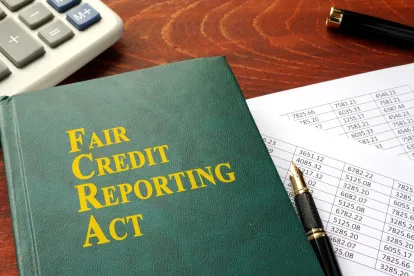The Eleventh Circuit Court of Appeals recently reversed summary judgment entered in favor of Experian Information Solutions, Inc. (“Experian”) in a Fair Credit Reporting Act claim brought by Henry Losch (“Losch”) finding not only that Losch had standing to bring the claims but also that Experian’s investigation of Losch’s credit reporting dispute was not “reasonable as a matter of law.” Losch v. Nationstar Mortgage LLC d.b.a. Mr. Cooper, -- F. 3d. --, 2021 WL 1653016, *1 (11th Cir. April 28, 2021).
Losch disputed the reporting of a mortgage loan he obtained in 2012. Losch initially reaffirmed the mortgage in bankruptcy, but after the secured property was sold by the bankruptcy trustee, Losch rescinded the reaffirmation with the bankruptcy court’s approval. Although, Losch no longer owed the mortgage debt, after the conclusion of his bankruptcy case, Losch discovered that the debt was still reported on his Experian credit report and was noted as past-due. Losch disputed the reporting with Experian and offered an explanation of the bankruptcy history, including the rescission of his reaffirmation. Experian sent Losch’s dispute to the mortgage servicer, Nationstar, which confirmed the loan balance and past-due status. After notifying Losch of Nationstar’s response, Experian took no further action to verify the debt and continued reporting it as past due. Experian did not correct the reporting until after the lawsuit had been filed.
Losch filed suit in the U.S. District Court for the Middle District of Florida against Experian and Nationstar alleging willful and negligent noncompliance with FCRA for failing to conduct a reasonable investigation of his dispute. The District Court entered summary judgment in favor of Experian, finding that its reliance on the furnisher’s response was reasonable as a matter of law. Losch appealed.
The Eleventh Circuit, sua sponte, addressed the issue of Article III standing and concluded that Losch had shown concrete injury by demonstrating that Experian supplied his credit report at least 26 times to third parties who had performed soft inquiries in connection with prescreened offers. 2021 WL 1653016 at *3. The Eleventh Circuit separately found that Losch had demonstrated concrete injury in emotional distress and time spent disputing the inaccurate reporting. Id. at *2-4.
On the merits of the FCRA claim, the Eleventh Circuit quickly dispensed with Experian’s defense that the information reported was factually accurate. In so holding, the Eleventh Circuit recognized that “[a]lthough a bankruptcy discharge doesn’t expunge a debt,” Experian’s reporting of the existence of the debt and the balance of the debt as past due, “was still factually inaccurate.” 2021 WL 1653016 at *4. Following the discharge, “Losch was no longer liable for the balance nor was he ‘past due’ on any amounts ....” Id.
In concluding that Experian’s investigation could not be deemed “reasonable as a matter of law,” the Eleventh Circuit noted that Experian did nothing other than transmit the automated consumer data verification (“ACDV”) form to the furnisher. “[I]t easily could have done something with the information Losch provided .... On those facts – where Experian didn’t even check the bankruptcy docket – a jury could find that it was negligent in discharging its obligations to conduct a reasonable investigation and reinvestigation into the disputed information.” Id. As such, the Eleventh Circuit concluded that Experian was not entitled to summary judgment on the issue of whether it negligently failed to comply with FCRA.
The Eleventh Circuit, however, upheld the District Court’s entry of summary judgment on the willful claims finding that Experian’s interpretation of its duty under FCRA “could reasonably have found support in the courts.” 2021 WL 1653016 at *8.
Lessons Learned: While the Eleventh Circuit’s holding is narrow, furnishers and credit reporting agencies should consider reviewing public records when investigating consumer disputes, particularly when the disputes reference bankruptcy or other court actions.




 />i
/>i

